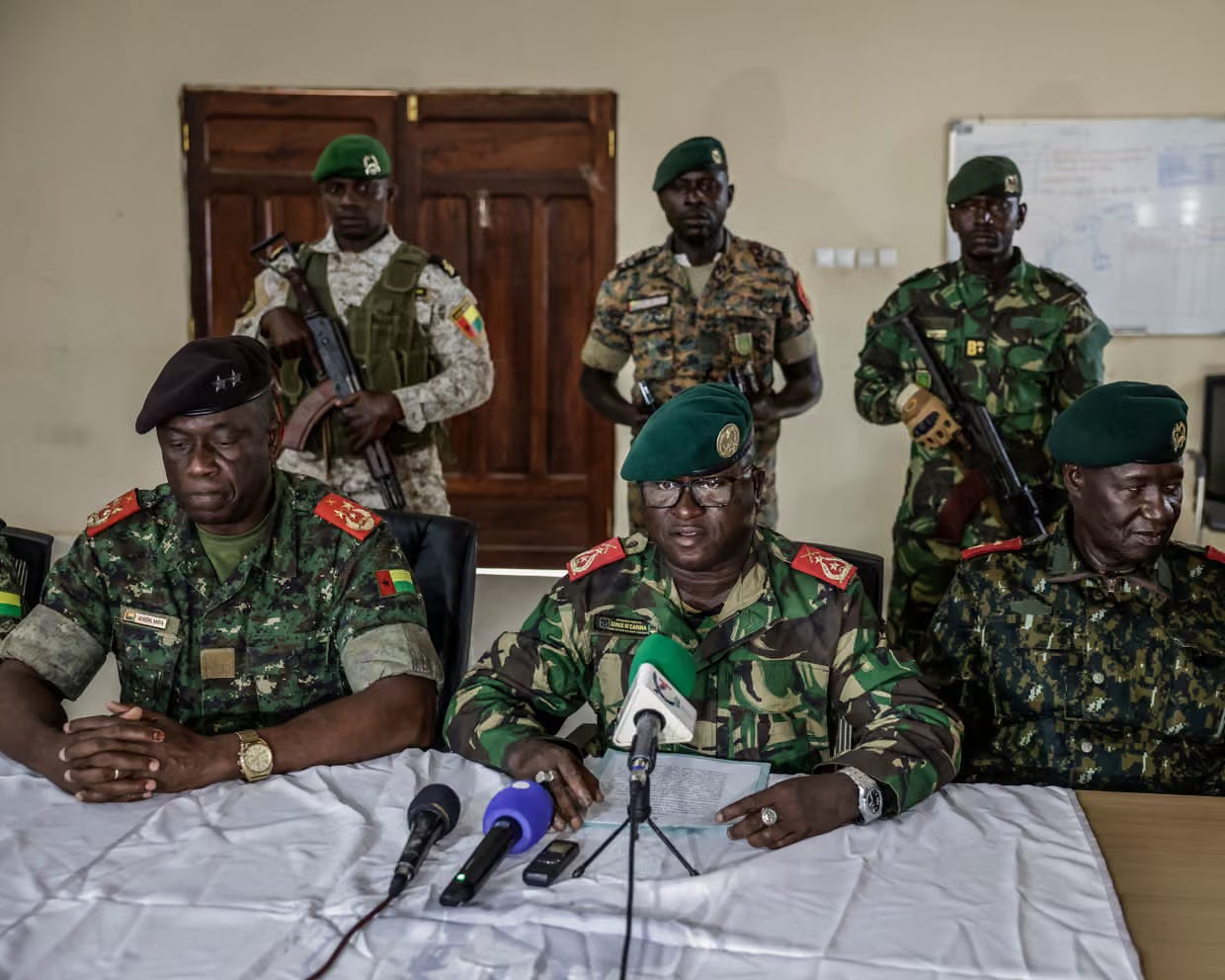Guinea-Bissau Military Seizes Power as Disputed Election Spirals Into Crisis
Officers say they are closing borders and suspending poll as president and main rival both claim victory

Guinea-Bissau’s armed forces have declared that they are assuming “total control” of the country, plunging the small West African nation into yet another power struggle just days afte…



